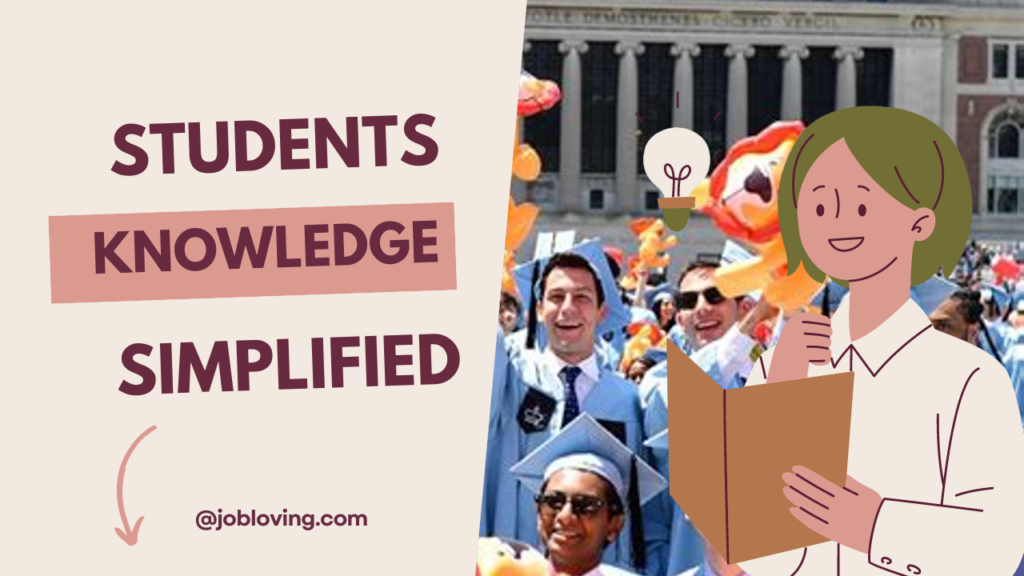When it comes to referring to students at Columbia University, the term “Columbians” takes center stage. This title captures the essence of their academic identity and school pride, making it the go-to name for anyone navigating the campus. But delve a bit deeper, and you’ll discover a multitude of unique and playful monikers that embody the rich culture and spirited camaraderie among these Ivy League scholars.
Columbia students affectionately toss around names like “Bollinger’s Baddies,” a lighthearted jab at their university’s president, Lee Bollinger, fusing humor with their scholastic struggles. Underneath this levity often lies the truth: the weight of academic rigor at Columbia can feel overwhelming at times, leading many students to dub themselves “elite super nerds.” It’s a badge of honor, illustrating their intense focus on their studies, even as they grapple with the infamous “dead inside” commentary—an ironic nod to the sleep-deprived reality faced during finals week.
Yet, the dynamics of identity extend beyond singular labels. At Columbia, the student experience is further enriched by inter-college banter, notably between Columbians and their Barnard counterparts, affectionately termed “barn-dar” in jest. This playful rivalry contributes significantly to the engaging campus culture, where terms like “The But” refer to the prominent Butler Library, a sanctuary for stressed scholars, shaping their experiences in ways that resonate well beyond the classroom walls.
With a distinctive blend of tradition and self-awareness, you’ll also find playful twists: “Columbi,” a breezy shorthand that departs from the conventional, and “Cudent,” incorporating a modern flair. Upon graduation, alums transform into “Columni,” cementing their place in a lineage of celebrated graduates, while often reflecting a joyful sense of liberation from academic pressures. It’s a mixed bag, with the general public sometimes labeling these students as “privileged,” a perception that Columbia students humorously dissect, often referring to themselves as “Middling Endowmenters” when poking fun at the university’s financial status.
The richness of Columbia’s student identity blooms through its lexicon, which isn’t just exclusive to academics. Terms like “Ham-Del” for Hamilton Deli reflect the social hangouts, while “CULPA” serves as a critical tool for swapping information on professors. This insider language not only enhances a sense of belonging but also fosters connections within the vibrant community. Slang often evolves, capturing the gaming spirit of campus life, creating a tapestry of words that are as much about belonging as they are about fun.
So, it’s clear: whether you refer to them as Columbians, elite super nerds, or simply “the stressed ones,” Columbia students embody a rich tapestry of identities that span academia, humor, and personal connection. It’s the perfect blend of pride and playfulness that together forms the essence of being a Columbian in the heart of Manhattan.
What does the term “Columbians” signify in the context of student identity?
The term “Columbians” reflects a strong sense of school identity and pride among students, highlighting their connection to Columbia University and fostering a community spirit.
How do Columbia students balance their academic rigor with their social experiences?
Columbia students often describe themselves as “elite super nerds,” indicating a strong academic focus, while also engaging in humor and playful slang that reflects their social interactions and experiences, creating a unique blend of seriousness and levity.
What role does humor play in the identity of Columbia students?
Humor serves as a coping mechanism for Columbia students, as seen in terms like “dead inside” and playful nicknames for university facilities. This humor fosters a sense of community and helps students navigate the challenges of their academic environment.
How do alternative names for Columbia students reflect their cultural identity?
Alternative names like “Columbi” and “Cudent” showcase a desire among students to differentiate themselves from other Ivy League institutions, emphasizing their unique cultural and academic heritage while fostering a sense of belonging within the Columbia community.

